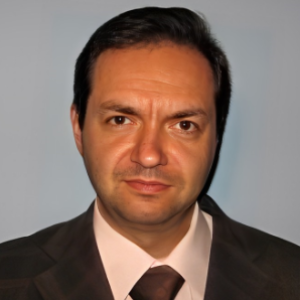Title : Transistor based biosensors for dopamine detection
Abstract:
The dopamine measurement in human blood or urine could be an valuable index in the neuropsychiatric disorders. Dopamine belongs to a class of analytes for biosensors, known as neurotransmitters from the catecholamine family. Neurotransmitters have implications in brain functions, cardiac arrest, muscle contractions, plus many neuro-psychiatric implications, being able to be detected in blood, urine and sweat. This work highlights the importance of transistor based biosensors as devices for dopamine recognition. The first part is dedicated to an introduction in biosensors for neurotransmitters, with focus on dopamine. The regular methods in their detection are expensive and require high expertise personnel. A major direction of evolution of these biosensors have expanded with the integration of active biological materials, suitable for molecular recognition, near to electronic devices, like transistors. Secondly, the linear detection ranges of the transistor based dopamine biosensors correspond to the clinical demands, while the biosensors offer an excellent sensitivity and specificity, easier than conventional spectrometry. Thirdly, the applications of novel nanomaterials and biomaterials in these biodevices are discussed. Older generations of metabolism biosensors can't detect concentrations sub-micro-molar range. But new generations of biosensors that combine aptamer receptors and organic electrochemical transistor OECT, as transducers have pushed the detection limit to pico-molar and even femto-molar range, which fully cover the usual ranges of clinical detection of human dopamine in body humors 0.1 nM -10 nM. Ultimate evolutions allows co-integrate transistors and vesicles with natural receptors of dopamine, like G protein-coupled receptors to push the detection limit to uni-molecular efficiency.
Audience Take Away Notes:
- How transistor based biosensors can detect one of the most important neurotransmitters - Dopamine (DA)
- Work principle of OECT transistors and future perspectives for DA detection
- The study provide practical solutions to co-integrate receptors near transistors




